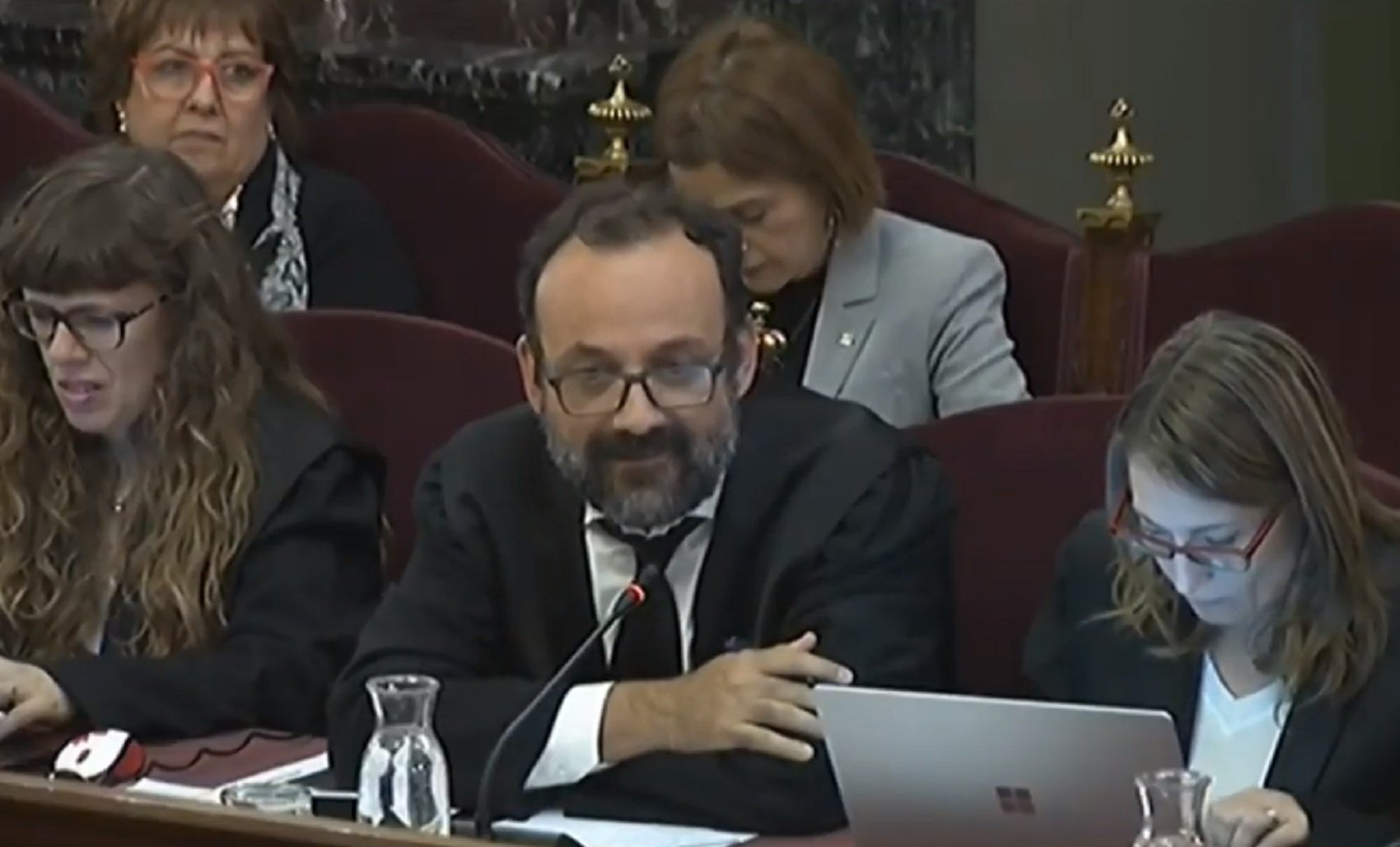Lawyer Benet Salellas, part of Jordi Cuixart's defence team at the Catalan independence trial, is convinced that when the Supreme Court delivers its verdict in the case, the Spanish state could reactivate the European arrest warrants for the Catalan government members in exile. Speaking to public broadcaster Catalunya Ràdio with the end of the trial just a few days away, Salelles gave the warning as part of broader comments on what he does not hesitate to call a "political trial", whose verdict may have "extremely dangerous" implications for society.
The court is afraid of granting us time to dedicate to the central issues, and that is a very clear symptom of a political trial
A political trial
Salellas was fierce in his reiteration that the trial has been unjust, basically because "the Supreme Court, before starting the hearing, already had a certain vision of where it wanted to take it"; this "allows us to believe that the judges are acting as executors of a decision that was already taken", an issue that he described as "grave." "The trial appears, in its origins, to have been intended to exert influence on the independence process," declared Salellas, stating that there has been a "false discourse" presented.
For his own part, he stated that he and his client Jordi Cuixart have not "given up on emphasising the political dimension of everything that happens in the trial," although he affirms that they will also present a "legal and technical" defence, point by point. "The legal defence must go hand in hand with a political defence," asserted Salellas. He complained that the court is only allowing an hour to the defences for their final summing-up, after devoting a great deal of time to collateral events. "The court is afraid of granting us time to dedicate to the central issues, and that is a very clear symptom of a political trial. It is extremely unjust."
Trial too long
Benet Salellas says the trial could have been completed in three weeks: "90% of the evidence presented at the trial was clearly superfluous," he affirmed, giving as an example the testimonies of hundreds of police officers. He also asserted that a "very harsh interpretation of the principle of authority" has been given, when "17 years' prison can be called for simply because a person got up on top of a Civil Guard vehicle."
The lawyer is waiting to see "the arguments justifying the verdict" and feels concerned about how they will leave "the right to assembly and the freedom of expression". For him there are major questionmarks raised about these: "if these things don't exist, then we don't have a truly democratic state." "This trial will set limits on the right to protest," said the lawyer, concluding that "it may end up defining the rules of the game in a way that is extremely dangerous and criminalizes protest."
And for that reason, he said, the legal team is already working on a possible appeal of the sentence in Europe, basically denouncing the attack made on fundamental rights. Meanwhile, he has little confidence in Spain's Constitutional Court - the first step in the appeal process - which in recent years has hardly made a single ruling in favour of appellants who have oppose the constituted powers.
Return to Catalonia
Salellas also said that "there is nothing to make us doubt that the prisoners will be able to return to [a jail in] Catalonia as soon as the trial ends" and added that by the end of June they could be in Catalonia. In any case, he explained that the final decision depends on the institutions involved. The defences will ask for bail, but do not have much confidence that the court will grant it, especially after the Spanish state's disobedience of the United Nations working group ruling that called for the immediate release of Cuixart, Sànchez and Junqueras.

